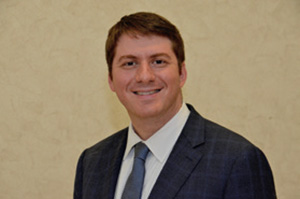
Va-yidom Aharon.
And Aharon was silent.
The halachic attitude to tragedy has been characterized by Aharon’s paradigmatic response to the unfathomable death of his two sons on what should have been a day of unmitigated joy, as the Mishkan was inaugurated. We understand very well that when confronted with the magnitude of tragedy that Aharon faced on that day, as the Mishkan was transformed from a location of Divine presence to a place of death, or when a place of tefillah, such as the Tree of Life Congregation, was transformed into a scene of carnage on what should have been a day of celebration of the continuity of the Jewish people as a child was brought into the covenant of Avraham, words are an inadequate vehicle to convey the profundity of our communal grief. As Rav Pappa taught us long ago, agra di-ve-Tamia shetikuta (Brachot 6b), the house of mourning is marked by silence.
V’acheichem kol Beit Yisrael yivku et haserefa asher saraf Hashem.
“And your brethren, the entire House of Israel, will cry for the fire that raged from the Almighty.”
And yet, despite the inadequacy of words to convey the depth of our sorrow, there is a need to respond, and to respond with emotion, with tears, to the horrific act of terrorism in Pittsburgh. As Rambam reminded us, the definition of one who is poresh min hatzibur, who dissociates from the community, and thereby surrenders his portion in the World to Come, includes an individual who does share in the suffering of the Jewish people, and, as such, who is nivdal mei’adat Yisrael.
The loss is felt at many levels, in expanding concentric circles. First and foremost, for the 11 kedoshim, who each represented an entire world, an olam maleh, and for their families, whose lives have been irrevocably changed. Second, for the Pittsburgh Jewish community, which has lost lifelong friends and neighbors. Third, for the American Jewish community, and more broadly, for the entire Jewish people, kol beit Yisrael.
An attack on one synagogue is an attack on every synagogue. An attack on any group of Jews, irrespective of denomination, is an attack on every group of Jews. This is precisely what the gunman said as he embarked on his murderous rampage, noting that “all Jews must die.” He attacked the Pittsburgh congregation, thereby, not as individuals, but as representatives of the Jewish people.
As the Rav taught us, with respect to matters that concern the Jewish people’s interactions with the outside world, kilapei chutz, we must stand shoulder to shoulder with our brothers and sisters across every denomination. We share in the covenant of fate, in the brit goral, of which he wrote so powerfully in “Kol Dodi Dofek.” With the dramatic rise in anti-Semitic attacks in this country, we must join ranks as we confront this threat to our entire community.
Though the hour is a grave one, let us not forget that Yirmiyahu’s description of the Jewish people as am seridei charev (Yirmiyahu 31:1), a nation that has survived the sword, has been a hard-earned one. Though we in the American Jewish community have largely been spared, certainly relative to our brothers and sisters in Medinat Yisrael, we are still, in every sense, the heirs to centuries and millennia of the highest degree of resilience in preserving our precious mesorah in the face of those who would seek to destroy us.
As is recited at every brit milah, but which resonates with greater meaning in light of the horror in Pittsburgh, va’omar lach b’damayich chayi, va’omar lach b’damayich chayi, from the very depths of the blood and carnage the baby lived, and so will the Jewish people.
By Rabbi Daniel Fridman
Rabbi Daniel Fridman is the rabbi of the Jewish Center of Teaneck.









